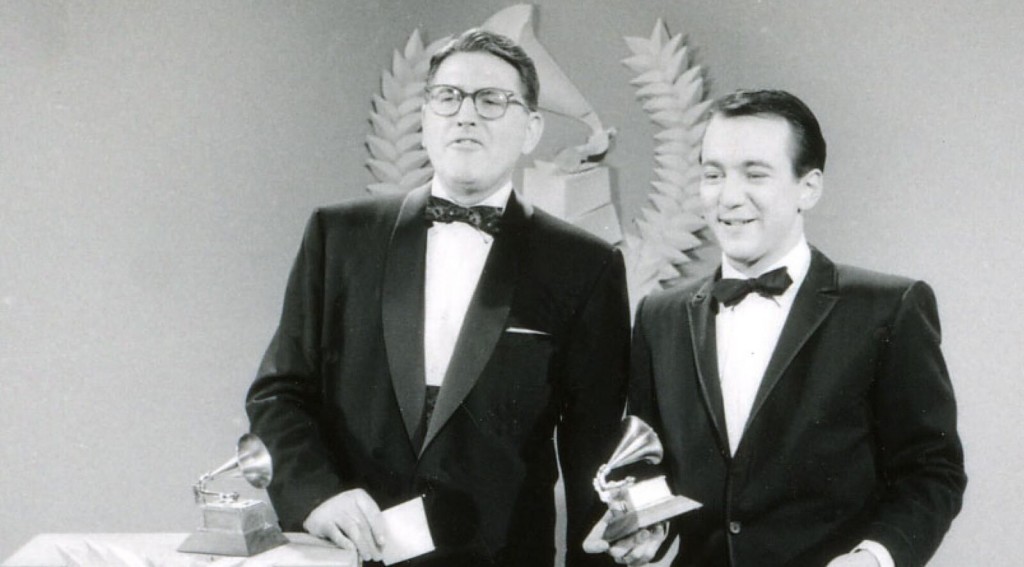
Six decades of being behind the times
By Caroline Ho, Arts Editor
If you pay any attention to the music world, especially in the last week or two, you’ve probably heard some complaints that the Grammy Awards suck—they pander to the big recording companies, they only recognize commercially popular, “safer” artists and ignore those who are more controversial, yet socially relevant, and they completely drop the ball on every genre that features newer and moderately progressive content. A glance through Grammys history will tell you that these criticisms are just as old as the awards themselves.
The Grammy Awards were created as a result of the Hollywood Walk of Fame. When the executives of several major record companies were putting together a list of candidates for the Walk, they realized that many of the most influential players in the music industry didn’t meet the metrics for Walk of Fame stars, so they founded the Grammys to recognize these individuals. The first awards were held in May of 1959, with 28 categories. Two of the night’s biggest awards—Record of the Year and Song of the Year—went to Italian singer-songwriter Domenico Modungo with his hit “Nel Blu Dipinto di Blu (Volare).”
However, even in its early years the Grammys faced accusations that their selections were limited and outdated. Many musical trailblazers received Grammy recognition belatedly, if ever. According to a January Los Angeles Times article, Elvis Presley, who had been revolutionizing rock and roll since the ’50s, only received his first award in 1967, and that was for a gospel recording; Bob Dylan similarly received his first Grammy in 1980, which was the inaugural award for Best Male Rock Vocal Performance. Later genres including rap, grunge, and other more avant-garde styles followed in the path of rock by being largely snubbed by industry bigwigs.
The Recording Academy, the organization of producers and other professionals behind the Grammys, has also had its share of more overt slips. One of their biggest flops was the 1990 Best New Artist award given to German R&B singers Milli Vanilli, a win which was later revoked when the public discovered that the pair’s performances were lip-synced and they hadn’t actually provided any of the vocals on their record.
With this track record, some award recipients have been understandably sceptical about the honour of being chosen. When the category of Best Rap Performance was introduced in 1989, several of the nominees—including winners DJ Jazzy Jeff & The Fresh Prince—boycotted the ceremony because their category was not being televised, which they felt was an insult to the rapidly rising hip-hop world.
Maynard James Keenan of the metal band Tool, in a 2002 interview with NY Rock, called the Grammys “nothing more than some gigantic promotional machine for the music industry.” Plenty of other innovative artists who have completely reshaped music have similarly pointed out the elitism, conservatism, and blatant commercialism of the whole process.
Since 1958, the Recording Academy has been constantly shifting the categories for the Grammys by adding, merging, and cutting genres as they scramble to catch up to musical tastes. They underwent their largest overhaul ever for the 2012 awards, most notably getting rid of the separate awards for male and female vocal performances and combining many smaller categories.
However, for many musicians and other critics of the Recording Academy, the gender merger has created an increasingly patriarchal environment where the majority of top awards are given to men. Last week’s 60th Grammy Awards seemed to exemplify this prejudice, with the notable scarcity of female winners and one much-criticized comment by Recording Academy President Neil Portnow that women need to “step up” in the industry.
Across issues of gender, race, cultural background, and more, the Grammys have long struggled to prove their relevance, yet they seem to be failing more and more. According to Forbes, the viewership for the 2018 Grammys dropped about 24 per cent compared to last year’s show. Music has always been a primary avenue for expressing ideas of how to move forward as a society, and this awards show run by industry executives has been especially slow to catch on.



